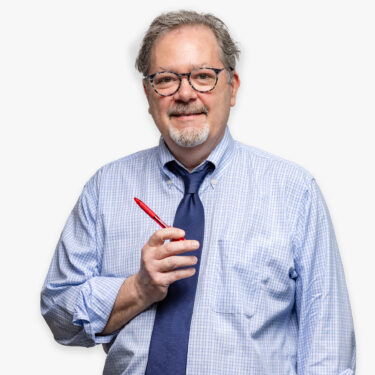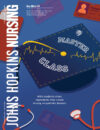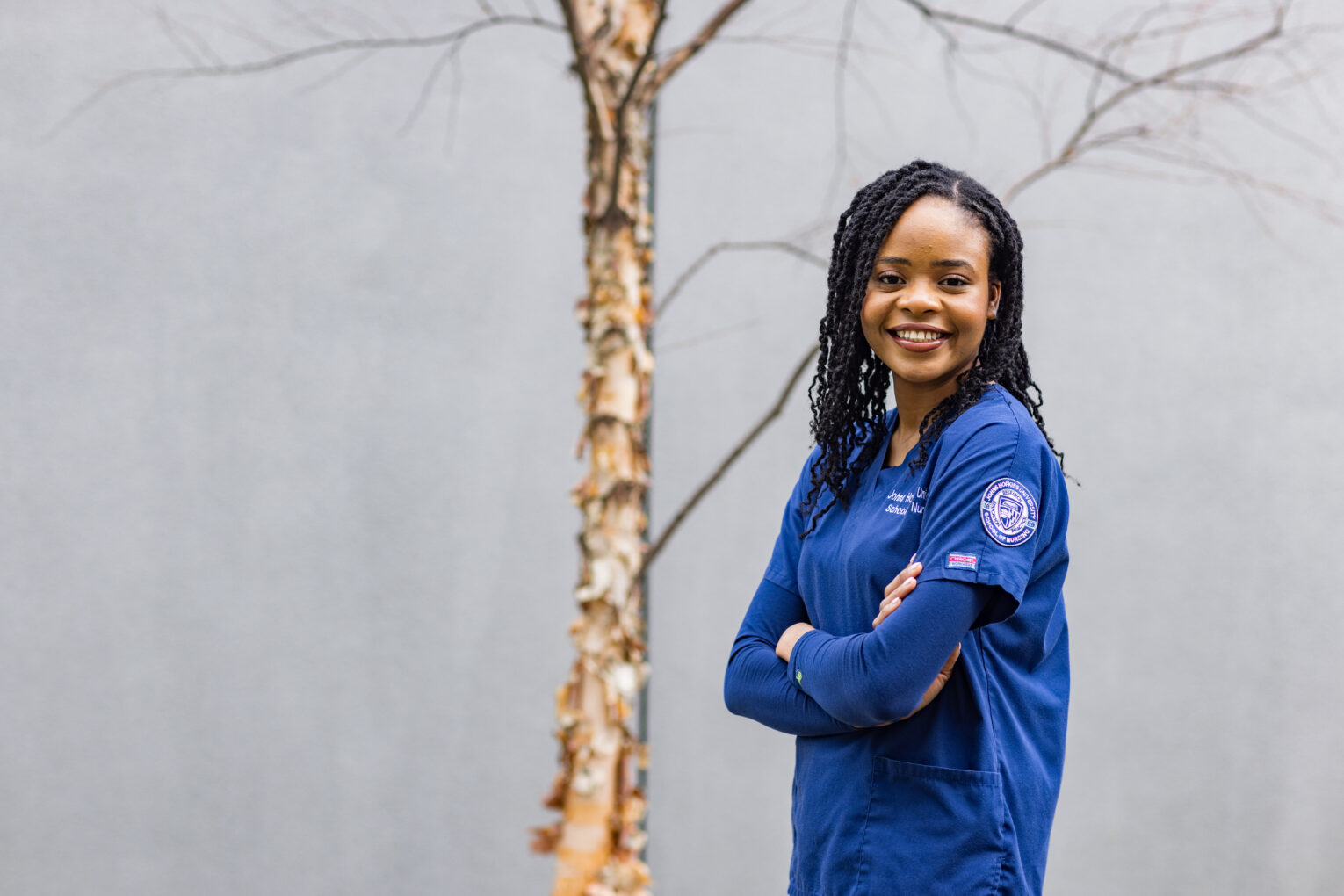
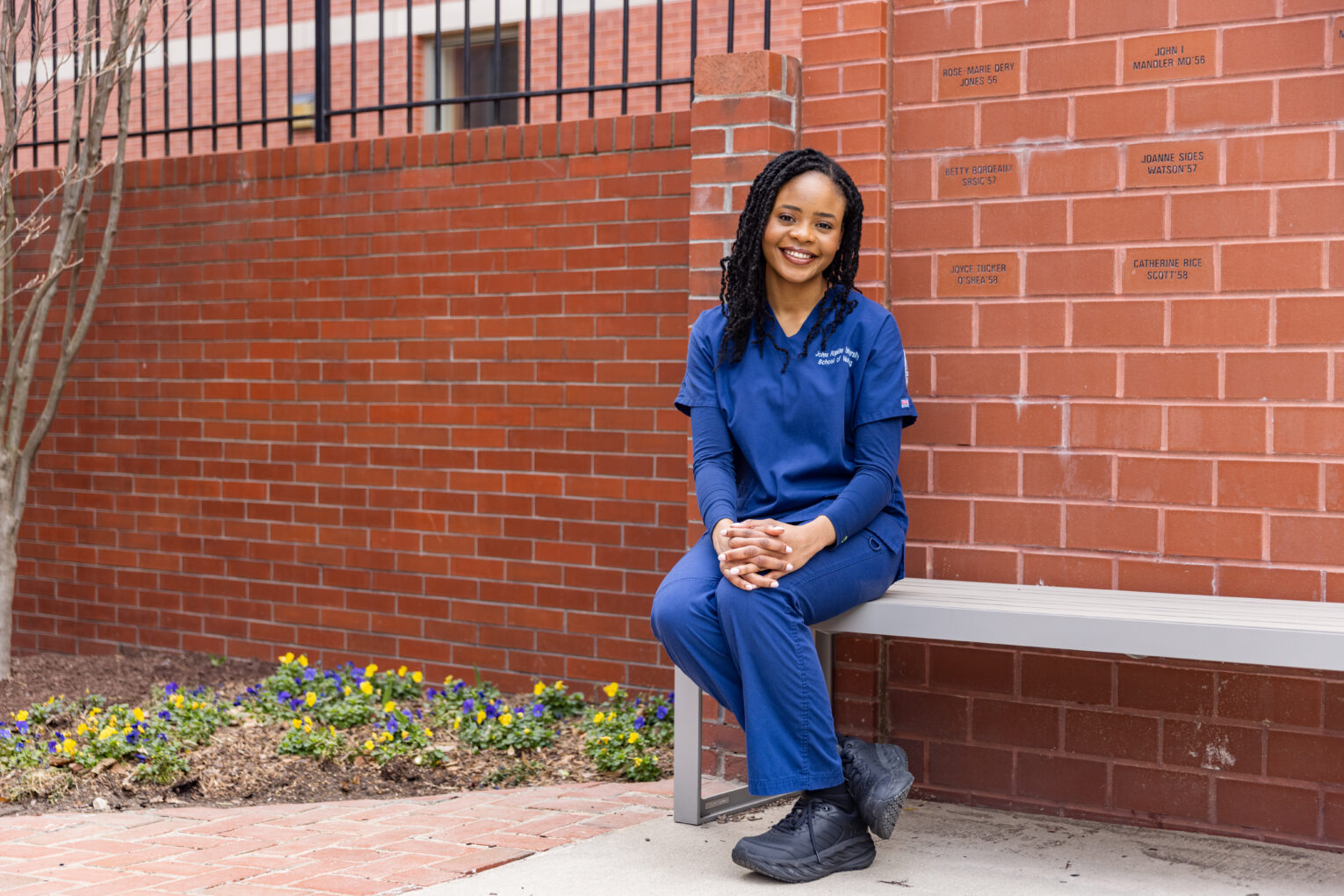
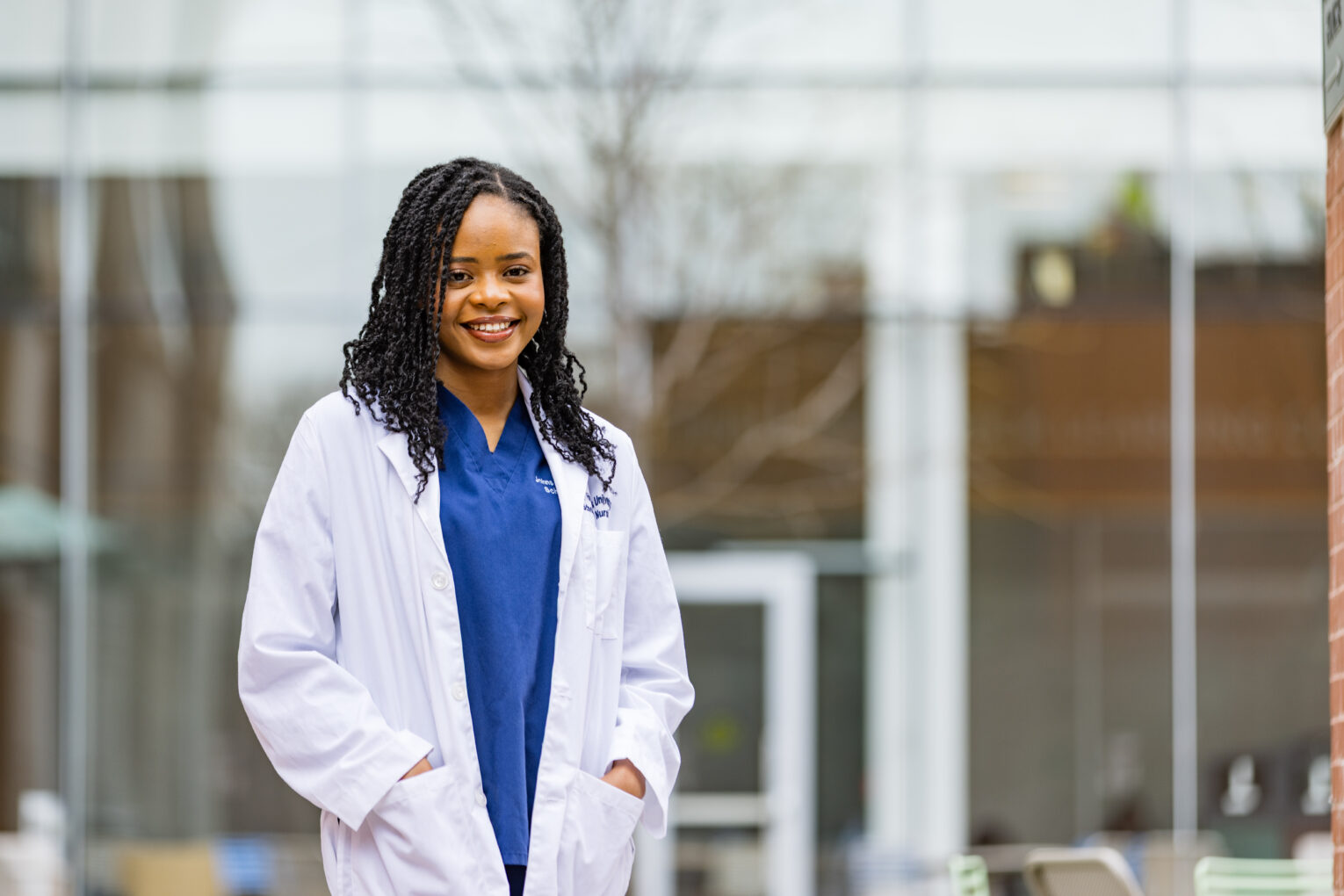
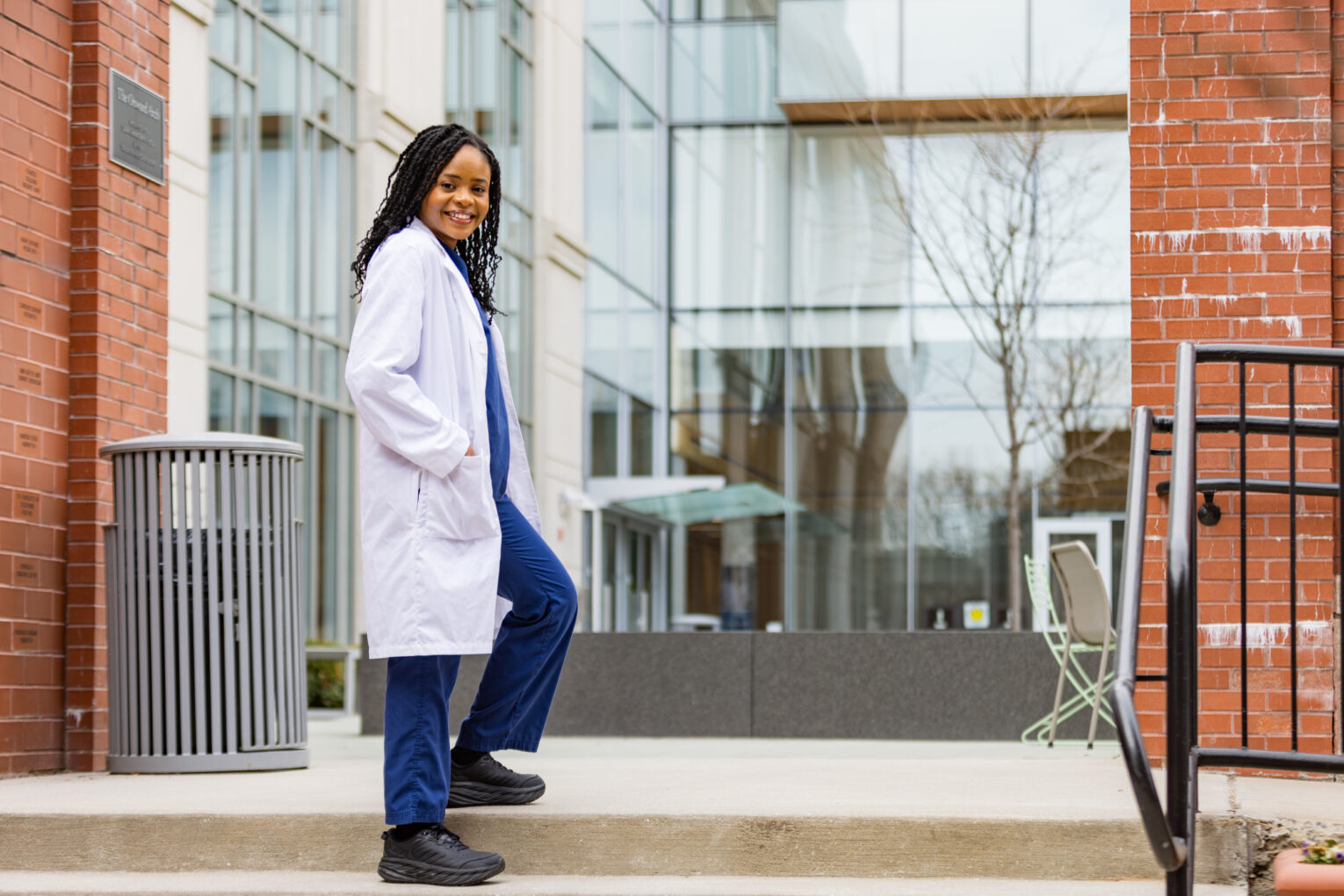
Favour Oloriegbe leans into her faith, watching for signs big and small.
As a University of Kansas freshman, Favour Oloriegbe was on a road trip, passing through Baltimore on the way to visit relatives, when she saw a sign that changed her life:
Johns Hopkins.
And just like that … “I’m going to go there.” Her surprised and very skeptical companions scoffed. What did she know about Baltimore? And Johns Hopkins University? She was a new arrival to the United States from Lagos, Nigeria, still learning her way around Lawrence KS. Johns Hopkins … yeah, right.
Fast forward to junior year. An email brought a survey gauging student interest in continuing education. Oloriegbe dutifully filled it out, not expecting much … especially not a letter of interest from the Johns Hopkins School of Nursing. But there it was, clear as a neon sign on a city skyline.
She graduated KU with honors and a degree in behavioral neuroscience and went home to Nigeria to think and plan next steps on her journey. And to pray on it.
For Oloriegbe, service—to humanity and to her faith—is No. 1. Coming of age in Nigeria, she had seen and experienced a health care system that lags behind that of other nations largely because nurses do not feel their worth or know their power to heal both people and processes. She knew Johns Hopkins would take her away from Nigeria once again (“I’m a Nigerian, and will always be a Nigerian”), but then it could also send her back home prepared to do something bigger than herself. She jumped in with both feet.
“This is a truly life-changing opportunity the amount of information that I have because I went to this school.”
“My faith drives everything that I do,” explains Oloriegbe, president of the Fellowship of Christian Nurses at Johns Hopkins. “There’s a verse in the Bible that I love so much. And it says, ‘He that’s faithful in little will be faithful in much.’ That verse always reminds me to be faithful when no one’s watching, to do the right thing when no one else is seeing, to show up to work ready to serve, to have integrity in my class work, because God sees that.”
As a nurse, it also means that when you can’t fix everything—such as overwhelming socioeconomic woes that might be denying an individual in her care the best opportunity to heal—find something you can do, and go from there.
“What is the ‘little’ that God is calling me here to right now? I’m going to be faithful with that, and I’m going to be faithful with that every single day. And who knows, maybe one day I’ll get that ‘much’ opportunity. That’s what drives my compassion. It carries me.”
Oloriegbe is not overly concerned that others might not agree with, understand, or even necessarily welcome her open faith, echoing one of her dad’s favorite lines: “No one is ever going to resist kindness.”
She adds: “No one is ever going to resist joy. No one is ever going to resist peace. No one is ever going to resist forgiveness. No one is ever going to resist humility and patience. Whether you’re a Christian, a Muslim, or don’t believe in anything at all.” Her father’s words serve as a reminder that these are not just religious ideals but universal values that bless and connect all people. For her, they are part of the foundation that allows her to live out her faith with confidence, without worrying about how others may receive it.
‘Wide doorway’
Meanwhile, Oloriegbe will work to build her clinical skills and keep stretching herself into the nurse, colleague, and leader she’s fast becoming.
“Since I’ve gotten into Johns Hopkins and progressed in my program, it struck me, ‘Man, this is a wide door of opportunities.’ It excites me. And it feels like I’m only about to step into that wide doorway. This is a truly life-changing opportunity the amount of information that I have because I went to this school.”
And the experience keeps expanding. “I just witnessed my first birth,” she reports, joking, “This last 24 hours has done something to my mind.” Last semester, “I got to sit with someone who was dying. … From the birth to the end, it’s such a great opportunity to be there, and everything in between. The skills that they’re giving us are empowering us to do that. They tell you in your first semester that your brain is going to change, but it doesn’t hit you until, ‘Whoa. I’m thinking like a nurse.’ Long-term, wide-scape.”
And if the signs do one day point her home—“I’m figuring that out as I go through my last couple of semesters”—Oloriegbe will work to persuade nurses in Nigeria to think alike. She hopes to be a symbol to a work force that knows little of the opportunities and interprofessional cooperation present in top U.S. health systems.
“For sure, for sure, I want to contribute to that health care system at the macro level. There’s a lot of restructuring and educating that needs to be done in Nigeria, especially with nursing. Because right now we have a very burdened system, but there are still all these people who need good care. And nursing can be a strength that can help to yank that health care system up. I feel like nurses there really need that wakeup call”—she snaps her fingers—‘What you’re doing truly has purpose, has impact!’ But it’s just not seen like that.”
Little first, then much. ◼

